A Conversation with Anna Krivolapova
The author of 'Incurable Graphomania' on autofiction, parapolitics, Frank Ocean, and drawing inspiration from Russian horror movies as well as Russian cartoon characters
Anna Krivolapova is a writer whose debut short story collection, Incurable Graphomania, has been making waves in the weirder circles of the internet since its release in September 2023. When I finally got my hands on a copy — I ended up ordering it through a retailer who specializes in academic literature, mostly medical and computer science, which I’m sure means something deeper that I’m not picking up on — I tore through it, dazzled by the elegance of the prose, its characters, their psychology, the slightly askew dialogue, and the way it fearlessly, recklessly even, sunk its fangs into the rancid, zombified flesh of modernity. There was a real strength to her voice, one completely unburdened by trends and boring politics.
On a whim, I reached out to her about an interview and she was gracious enough to accept. We ended up speaking for more than three hours, braving the inscrutabilities of time zones (my fault), the inscrutabilities of logging into Zoom with the account you actually bought Premium for (also my fault), and the human body’s need for food (take this one up with God).
I spoke with Krivolapova on August 9, 2024 and we talked about fiction trends, literary pitfalls, the films of Sean Baker and Ilya Krzhanovsky, and much more.
Fred Barrett: I recently wrote about this film called Sebastian and it was centered on a young writer who gets into the world of sex work in order to find inspiration for his debut novel. What was remarkable was that the film essentially disregarded inspiration or imagination entirely in favor of autobiography. This seems to be a trend I assume you’ve noticed as well: autobiography is the presumed default. I was wondering if you had any thoughts about why that is.
Anna Krivolapova: It’s easier. I think, honestly — and this might sound harsh — a lot of people just aren’t really coming up with stories. They’re merely accessing their memories. I’ve come across so many pieces, and I really give them a chance, but they left me bored and wishing, “If only they did the legwork in order to sculpt a narrative, add some spark.” It’s very easy, popular, and accessible to write vignettes, to slap an ISBN onto your notes app. There are a lot of short story collections that I’ve wanted to like but I finish them and think, “Okay. Well, that was a travel journal.” It’s a medium that has been done well on occasion. Steinbeck’s Travels with Charley, for example. But I guess the uncharitable answer to your question is just the simple fact that it’s easier. Creating a satisfying, cohesive, suspenseful narrative is extremely difficult. Most historical fiction leaves me with the same sense of emptiness.
Do you feel like naming names when you talk about short story collections you were let down by?
Oh, naming names. You know, I’m not a big dogpiler. It takes a lot for me to publicly criticize something that someone’s made. Criticism gets attention. It’s pretty cheap for writers to dog each other. I think when I get more established, when I get older, I might feel more comfortable doling out the criticism. But I think if you only have one book under your belt, if you’re just new, you haven’t earned the right. But there are two recent short story collections I’m thinking of. And I really gave them a chance, but they ended up being kind of like, “And then I traveled here. And then I fucked this person. And then I had a fight with them in the middle of the street in Italy.” You know what I mean? [Laughs]
That being said, I did not enjoy Eve Babitz, Otessa Moshfegh, Eileen Myles, or Cookie Mueller’s short story collections. If it feels like a scene report, I’m not interested. I’m really excited for Audrey Lee’s debut short story collection, American Girlfriend, coming out next year. She has a story about ostrich leather in this collection that is one of the best short stories I’ve read this year.
A lot of that “scene report” stuff does seem to be operating in a mode that’s comparable to someone like Bret Easton Ellis, maybe. But he goes so far with it, he does manage to pull something interesting out of that. I don’t feel like this post-social media affect lends itself to literature all that well.
Internet speak has a very short shelf life.
That’s true but it’s interesting, though, because that’s a criticism that was levied at Bret Easton Ellis too. “Oh, this will have a really short shelf life. The bands and brands are gonna date the novel.” Some people thought Less Than Zero was way too of the moment. At least that’s how he tells it.
I recently saw a video of Dasha [Nekrasova] reading a short piece in New York. Someone transcribed the video, thankfully, and I was able to read the piece. I noticed that the language she used was very timeless. It felt like it could have been written by Tolstoy in the 1800s when he was newly rich and spending all his earnings on brothels and vice. I recently read Tolstoy’s Confession and it moved me. But it also could have been written in Bret Easton Ellis’ time, as you mentioned. And I think it’s a sign of a great writer to have your writing style embody multiple time periods. It’s not easy, there is often an errant word or moment that gives you away.
Do you like Dasha? What do you make of her?
A few years ago, I watched Wobble Palace by Eugene Kotlyarenko, in which Dasha and Eugene play a millennial first-gen Russian couple in L.A. It was so realistic and pertinent to my life, the relationship I just ended at that time… it made my skin crawl. I don’t think I’ll ever be able to watch it again. Kotlyarenko is a great filmmaker. I was so excited to see Mischa Barton in his newer film, Spree. I miss her.
In Wobble Palace, there’s a scene of Dasha lying in bed next to a sample ballot, contemplating her vote in the 2016 election. “Am I really with her? She really does hate Russia. Could be interesting to be oppressed for once.” And that made me laugh because I definitely had that inner monologue at some point. I think Hillary would have done what’s happening in Ukraine right now. She would have done it a long time ago. If she was in office, she would have sent American troops to Ukraine the first day she was in office.
I remember when you reached out to me about this interview you said you liked how I skim over politics. I think if you read my collection closely, and even more so the things I have cooking up now, I think you’ll figure out that one of my most consistent political views is just stay out of other countries. But so many of these programs like USAID, UNICEF, and other organizations have taken advantage of political strife and natural disasters in order to traffic children. And those children still have parents that are looking for them. But who cares about a little Haitian kid? The Caribbean, for example, is decimated by that. And people don’t really think about it that much. But that’s something I feel really strongly about. It happens all the time. It’s a trickle down from decisions made by the State Department and others who are really good at crafting these invisibility cloaks for what they’re doing in other countries.
Honestly, I thought I was gonna have to coax this stuff out of you but there you go. And all I did was ask you about Dasha. [Laughs]
[Laughs] Well, to get back to Dasha, that was one of the first times I really related to someone in a movie so completely. I hope she writes more. I’m eager to read it. To touch on Red Scare: I know I’m not alone when I say that the first time I listened, I felt relief. Their charm, sincerity, humor. And they aren’t shilling Better Help or bidets. They fall into this niche of first generation Eastern European immigrants that gets smaller and smaller every time the red scare flares up again — how do I explain. There are too many Russians who act like that North Korean woman with the implants. Especially the Boston Russians who come here and wax poetic at Yale or Harvard. I want to name drop a certain person so badly. Elliot Page could play them in the biopic. Anyways, being Russian on the American Internet is a funny thing nowadays.
It is, yeah. Another presumed default: every person you interact with online is American.
From your accent I assumed you were American.
Most of my family does live there but we’re actually from Jamaica so there’s some overlap with what you were saying about the Caribbean before. This isn’t really a parapolitical book but Tom O’Neill mentions Jamaica in Chaos when he brings up the fact that these two spooked-up figures in Roman Polanski’s circle were in Jamaica at the time of the Tate–LaBianca murders, ostensibly to film a movie but really it was to do intelligence work because the U.S. government was trying to curtail Cuba’s influence on the island.
Oh, that’s really interesting. Have you heard theories about Bob Marley? That he was possibly given a staphylococcus infection in his foot?
I have heard about that, yes. There is actually a weird connection between one of the people commonly believed to have given Bob Marley a pair of boots with exposed copper wire and the O.J. Simpson trial. I forget who it was but this person was Simpson’s neighbor and his testimony was a major reason Simpson was indicted. [Note: It was Carl Colby, son of CIA director William Colby.] I really should have prepared this stuff, knowing I’d be talking to you.
Bob Marley, O.J., conspiracies, the CIA — that’s right up my alley. Actually, I barely touch on it in Incurable Graphomania but my next book discusses the Caribbean more. I have a story about a rogue air force pilot who’s supposed to fly kids out of Haiti after a hurricane. But instead, he just flies them to this abandoned airport that he’s been living in and he makes them his employees. He also takes kids from other countries and creates this Tower of Babel thing. But then all of a sudden, someone dies and so there’s a little bit of a Lord of the Flies situation happening. I tend to write a lot about orphans.
I was gonna ask if that aspect of it is autobiographical in some way.
It is a little bit but it’s also inspired by a lot of parapolitical research because an orphaned child is a jackpot for anyone who is poised to take advantage. An unsupervised child — even if they do have parents, who are maybe strung out on drugs or are working night shifts to put food on the table — if their parents are, just any type of identity that you could take advantage of, that child can then be used as a tool for the state. And there are a lot of really specific ways that’s done. I think orphanages are hotbeds of abuse and I think with our laws, family court, social workers and things like that, there’s an abyss between what is happening and what things look like.
Or the people that intentionally adopt a child that doesn’t look like them. I’m sure a lot of people aren’t particular about the race. But some people — Angelina Jolie comes to mind — they use these kids as accessories. Virtue signaling. And I see that a lot where I live too. There’s a big wealth disparity and in the early 2000s, it was very trendy to adopt a kid from Honduras, and then just feed them Ritalin and Thorazine. It’s awful.
How did you get into parapolitics? Was this your starting point for that?
I only really started paying attention around the pandemic, I guess that was when I noticed the backdrops were painted on.
If I’m not mistaken, you don’t mention the pandemic at all in Incurable Graphomania, right?
Not once, no.
I mentioned the Tate–LaBianca murders before, which are considered to be the end of the sixties which is kind of a cliché at this point. Similarly, you could argue that the pandemic ended the early part of the 21st century or certainly the 2010s. Why aren’t people writing or making movies about it? There was a lot of music being made but it was all terrible and I can think of maybe three films that actually had something interesting to say about how it affected our lives.
I’m thinking of my answer and although gut instincts can be very reductive, I think that the reductive, intuitive answer is often the right one: I think it’s just because it wasn’t sexy. It was embarrassing. It made all of us into these shuffling little penguins. Everyone started dressing like shit, drinking too much, bloating, no grooming. At least a famine leads to nice cheekbones. I know that’s a pretty unsatisfying answer but I just think it’s because it’s an aesthetic hurdle. If you want to depict the pandemic, then you have to depict all this banal ugliness.
I get what you mean. Maybe you’d have to abstract it in an interesting way. You can’t just have people standing in line, waiting to show some bureaucrat their papers. Well, maybe you could.
But that kind of dystopia has been done before.
That’s true. It’s too Orwellian — such an old-school notion of what a dystopia is.
It is an old-school dystopia, yeah. There’s a lot of double think. The pandemic threw us all into this perpetual state of awkward, embarrassed confusion and uncertainty. We didn’t know who to listen to, we didn’t know who was overreacting. Your reaction to the pandemic was constantly picked apart by all your peers. I don’t know if that was true everywhere but it was very true where I live.
Distrust of Big Pharma aside, I got the vaccine if for no other reason than I would’ve simply not been able to move through the world without it. It wasn’t really a yes or no thing for me.
Yeah, the vast majority of people were in that scenario where they were not really given a choice. And again, there’s double think, confirmation bias.
Okay, I do wanna get into your work, though, and one of the first things I wanted to talk about was a paragraph in your story “Expert Witness.”
She stepped back slowly, grateful for the thick metal fire doors that had been guarding these dormitories since it was full of students eighty years ago. She crawled back into her sleeping bag and caught herself talking to someone, someone who wasn’t Jem, but loved her just as much. Someone she’d never seen, never met, but heard of. Someone who lived above the basement she worked in now, the man upstairs. She’d heard people pray before but never up close, never anyone her age, never anyone she knew personally.
People throw around words like “paranoia” or “sleaze” when discussing your work but this hints at something so much more tender and emotionally affecting, a dimension that’s, perhaps, underdiscussed with regard to your writing.
Thank you.
Going off that, though, I wanted to ask you, what role do faith and spirituality play in in your writing?
[Laughs] I tread lightly. Sometime a religious bent can put a reader off to fiction they’d otherwise relate to. [Pauses to think] That’s a tricky question. I skirt around it I think.
I ask you this because, even though I don’t read a ton of contemporary stuff and especially not genre literature because so much of it is just awful —
[Laughs] Unfortunately, yeah.
But what struck me about Incurable Graphomania was that there was a real substance to it. So much of the contemporary fiction I’ve read feels so slight — totally weightless. I’m wondering what do you think gives your fiction that substance.
It’s very important to me to write what I myself would choose to read. And I think a lot of people don’t follow that policy for themselves. A lot of writers will even publicly admit that they are not interested in other writers’ work and whenever I hear someone admit that I think less of their work. Maybe their writing would be a lot better if they were excited about reading. Solipsism is a product of widespread amphetamine use, by the way. Maybe what gives Incurable Graphomania weight is that a lot of these stories have moments or characters in them that came from dreams. I know it’s such a cliché, the Jungian dream analysis thing, but when you’re writing, when you’re concocting characters, I recommend heavily leaning into the subconscious. I recommend stream of consciousness sessions where you just write, write, write, write, write, and then take from that.
I will try to avoid naming names but there are a lot of female novelists who write in this grid-like way. Literary fiction is plagued with novel equivalents of Lifetime movies. The prose is clear, the author gives us heavy doses of exposition, and reiterates the protagonist’s ideas over and over. There’s absolutely no vocabulary that you’re not familiar with. Everything that occurs is quite predictable, even if it’s titillating and exciting. You know, late-twenties ennui, florists, someone getting murdered by their husband, something like that. And sometimes when you’re reading that stuff, it’s like you’re walking around an IKEA showroom. This looks like a book, this feels like a book but everything that is occurring is actually on the page. Emma Cline is guilty of this. That’s getting into another writing concept: the iceberg theory. The idea that there’s so much more under the surface. I think the short story is such an amazing medium because in seven to twenty-five pages you can create this entire microcosm, this entire world that has so much bubbling underneath the surface. Backrooms.
A name that pops into my head is Raymond Carver, someone who does that really well. He can write a story about a guy taking his wife to have dinner with a work friend and his wife and there will be all these little observations, subtle shifts in the dynamic, etc. There’s such a richness to it. But speaking of taking inspiration from dreams, does your dialogue come about that way too? It always seems to slightly off-balance.
Do you know where that actually comes from? I did this exercise where — and this is so creepy, I admit — I would sit in a café, tune in to one conversation, and write it down verbatim. The rule is I cannot change anything, not a single word. If someone starts to say something and then stops, I have to write it down that way. So it is a product of listening to how actual people talk and not writing dialogue, like so many writers do, where it sounds like they’re just transcribing a TV show. They use the same patterns of speech and the same clichés, especially when people write about crime. It’s an epidemic. But my dialogue may seems disjointed because it’s hyperrealistic — which makes it feel unrealistic if you’re expecting more literary dialogue or cop patter.
It does add an off-kilter quality to it. I noticed that the characters seemed more lucid whenever we’re just in their head as opposed to hearing them talking to people which is an interesting reversal since you would expect it to be the other way around. With your characters, verbalizing things makes them stranger somehow. [Laughs]
[Laughs] That is interesting.
I think this works especially well in “Some Like It Orange,” where the main character, Oksana, drifts in and out of consciousness.
I woke up one morning from this weird dream. And then 6 hours later, I finished the last line of the short story. Oksana is based on multiple people I know in real life. And she’s so real to me, so, so real. I’ve been around this person and it’s so hard to be around someone whose brain is rotted from recreational and pharmaceutical drugs. And it’s also subconsciously inspired by Cheburashka. Do you know Cheburashka?
No.
He’s a little Russian cartoon character with big ears. His lore is that he arrived in Russia in a box of oranges and the man at the grocery store is like, “What are we going to do with him? We don’t even know what he is.” And then a very sweet accordion-playing crocodile named Gena adopts him. Cheburashka fills me with so much sadness. This feeling, you can never go home. Lost, at the mercy of strangers. And I was thinking about this girl who comes to work as a lifeguard on the East Coast. She grew up in Ukraine during the fall of the Soviet Union.
People acknowledge the fall in this jokey way, like, “Oh, Eastern Europe was such a shithole.” But they don’t actually think about how quickly that happened or how devastating it was. It wasn’t about the Soviet Union being mismanaged and falling into decay. It’s about the West literally infiltrating Moscow with journalists and professors and economists that helped decimate the country. And Russia was doing badly, but all of the satellite states were totally devastated. I have a lot of friends, older than me, who experienced this, a lot of their childhood was huffing glue by the river, unemployed parents, and so this character comes out of that.
I’m writing her from a place of compassion. She’s in a terrible situation and commits violence when her subconscious mind cannot handle abandonment, cannot handle breaking out of a life of passivity. [Pauses to think] I say “a life of passivity” but I don’t want to seem like I’m putting the blame on her.
You mentioned compassion and I was gonna say that writing about these characters that are marginalized in one way or another, it does lend itself to a kind of voyeurism — “Look at how fucked up their situation is.” — but there is a lot of empathy here, something a story like this really illustrates. That’s one aspect of Incurable Graphomania that really took me by surprise.
Thank you.
I found the image of gas burners towards the end especially evocative.
She felt Kirilis leading her somewhere, telling her things that could get her into trouble. The cold salt water felt so good she couldn’t tell if she was supposed to be ashamed or scared, if she had done something wrong or if he was tricking her. Four blue-orange gas flames began to simmer in her chest.
And then a few paragraphs later the guy who is abusing her picks her up at the hospital and you close this story out like this:
He kissed her forehead four times, turning off every burner one by one.
I mean, come on. [Laughs]
[Laughs] Thank you.
Something about it really stuck with me even though it’s so mundane in a way. Maybe it’s because my old place had one.
Mine still does, actually.
There does seem to be a weight attached to it. My brain just gets flooded with memories and images.
Yes. [Laughs] So — female psychosis surrounding kitchen appliances: more common than you would think. [Laughs] And I mentioned it in the first short story too where the protagonist mentions her grandmother was afraid of refrigerators and she always unplugs them. This is a real thing. My great grandmother was afraid to have a refrigerator because it’s a fire hazard. Her solution to not having one was to just show up at the next door neighbors for dinner. [Laughs] “You guys can have a refrigerator but I can’t. Your apartment can burn down, but not mine.” She was very eccentric. She was also a cloud buster — it worked too. She could control the weather and a lot of other witchy stuff. It kind of runs in the family, this sort of intuitive, paranoid nature. Through the female side of my family, for sure.
Richard Brautigan, who is an author I bring up a lot, a big inspiration for me because of his simplicity and metaphors. Everything he writes is so human and touching and alive. He’s not trying to be cool or suave. He’s just very down to earth. But he’s also a little bit crazy. We hang out in dream world sometimes. [Laughs] And that ran in his family as well. In So the Wind Won’t Blow It All Away he talks about how his mother would be afraid to leave the house because she was afraid of the gas stove leaking. And they literally missed funerals and all these important events in their life, because they would get ready to go and then the mom would freak out and say, “No, no, no. Someone needs to stay here and watch the gas stove.” Her mind was going and she developed this horrible OCD about the gas stove and would wake him up in the middle of the night and make him go check it.
I’m not a big evolutionary psychology person because it’s based on conjecture, too malleable. It’s always somehow used to intellectualize sexist and racist feelings — so I’m not really coming at it from that perspective. But I do think it’s interesting that in the modern day we have all these machines that have a pulse and that have the potential to trigger a lot of chaos and destroy everything you have. And I think it’s really interesting to give people’s anxieties a name. I hate reading a book where characters say things like, “I’m so anxious.” Okay, Antoine Roquentin. Name it. [Laughs] Name the demon.
Do you feel like people are less eccentric these days? Or at least that there are less eccentrics?
Definitely. And I think it’s because of the internet. When you are eccentric, people like to say, “Oh, you just copied someone else’s personality. You saw that on the internet somewhere.” People make fun of like art students in this way a lot. Granted, art students do all dress weird in the exact same way. [Laughs] But yes, people are less eccentric, and it’s horrible. It’s a horrible drag on society that we’re losing our eccentrics.
I don’t mean to lean into old clichés about writers and artists but I don’t think you can write Finnegans Wake and be all there. [Laughs] I don’t know what kind of mentally ill you have to be but so much art being made now is bogged down by this rationalism, this adherence to cause and effect. Even what people want to get out of it is really colored by its perceived utility. A friend of mine said she liked Sally Rooney because it helps her navigate her love life. “I put this work in, it needs to benefit me in some way.” It’s like self-help. It’s a very economical view of things.
I actually have a theory about that: I think the MFA is a scourge on art. [Laughs] And based off individual examples that I’ve witnessed I can say that someone will have a passion for art, or writing, or filmmaking, design, or acting and they’ll do it in their free time and they produce things. Then they drop a bunch of money and get the MFA. And so many times they stop producing anything and some of them will even pivot careers to like, event planning. So I think there’s an overemphasis on the wrong things when people want to become writers. Maybe they were good at it in high school. Maybe they have great syntax or they have a knack for clear description. But they don’t have any stories. They just don’t have stories. And I think that’s the biggest issue today: there are a lot of wonderfully technical writers. People who went and got the degree and studied, but they just don’t have any stories to tell. And so to loop back what we said in the very beginning, they start to tell their own story. And that’s not always compelling.
I also think a lot of intrigue comes from tugging and pulling at what’s true and contorting it into something that’s maybe more stimulating or at least less myopic. And not spending all your life in academia or your room would probably help too. [Laughs]
I absolutely agree with you that putting yourself into the world, working a job where you are exposed to a lot of different people — that all feeds your writing. Living definitely feeds your writing. Maybe at a certain moment in time academia was a great place to write and fostered a lot of thought. I don’t really feel that way now, though. Like I said with the MFA, I think overschooling will ruin your talents.
Do you think there’s a degree of conformity that’s enforced through academia and higher education?
Definitely conformity and also it’s all heavily censored. They love to say we want to hear other voices, we encourage this and that but that’s just not true. And academia also rewards dirt. What I mean by that is it rewards people “opening up” about their trauma, particularly women. It rewards exposés and it rewards snitching. It rewards writing a horrible memoir about your mother. I’m talking about JD Vance. [Laughs] So academia does enforce conformity in that way because there are certain things that get their attention and other things are just not interesting to them or they’re not topical enough. “If you can’t imagine the NPR article, what’s the point?”
The flip side to what I said about this focus art’s utility is that it allows people to dismiss anything they don’t deem worthy of their time. They really do want self-help books more than anything else.
I pretty much condemn self-help books. I think they’re cheap. “If you can’t do, teach” comes to mind. But that’s a really interesting thought that people are approaching fiction in a self-help way. I think during any hard times of my life I will push any book away that is too pertinent to what I’m going through because I would hate to feel like I’m wallowing or indulging too much. But I have never read Sally Rooney so I can’t say how she would fit into that.
Going off your work, I doubt you’d like her much. Stephen Marche wrote a piece for Literary Hub a few years ago where he posits that Rooney exemplifies the “literature of the pose” which has essentially replaced literary voice in contemporary literature. I found that your voice is quite strong and didn’t seem to have been written by someone worried about saying the wrong thing. You even use the word “wigger” at one point. [Laughs]
[Laughs] Sometimes at readings, I get a little anxious about how the crowd will receive my work, especially the younger crowd. Gen Z is very shy and needs everything to be pre-vetted. But at my last reading, I show up and before I even get into the door, there’s this guy with a neck tattoo and a case of Pacífico. People are playing cards on the back deck, smoking, laughing. I leave to check out the space I’ll be reading from and I find this silent room full of Gen Z girls on their phones. Anxiety resumed! I worry about young women feeling brutally called out by my book because, well, I do. Especially in the piece I read, Ivan’s Nightmare. But every single time I’ve had that fear, it turned out I had completely misread the room. After that reading, the people who came up to me and complimented my piece the most were those quiet, smart, shy girls.
All these authors doing self-censorship are shooting themselves in the foot by being boring, by being prim and proper, by having great syntax, by being economical. It’s so important, in a novel especially, to have these extraneous moments. I hate this “media consumption” mindset. “How does this move the plot?” You shouldn’t worry about how the plot is moving forward. You bought the book. You’re reading the story — let it take you somewhere. I think a lot of these voiceless authors are just shooting themselves in the foot because people crave something else.
And also, one of the beautiful things about art is not just that you get to think and feel about the world in a way you wouldn’t otherwise but that there very much still is a mystery to it. I always use Taxi Driver as an example, where there’s a guy who does relatable things like fucking up a date but he’s also totally crazy. He’s compelling and human but also pathetic and insane. What’s really interesting, though, is that you don’t really know what his problem is. These days you’d have to have some flashback showing how his dad hit him or his mom was a sex worker or something. Instead, he’s just this isolated, weird guy.
I like that. I actually really like that you brought up the fact that they don’t give him some tragic backstory to justify his behavior. See, that’s another thing that is absolutely strangling literature right now. You’re allowed to write messy, abusive, evil characters… as long as they have trauma. [Laughs] It’s kind of a cop out.
I think good art is very much about what you leave out of it too — the things that sit at the margins. Sam Kriss wrote a piece called “The Repulsive Crust” and it’s about how legible and transparent everything has become. Everything is explained to death. Every trace of unknowability is stamped out.
A lot of what we’re talking about today are things that I’ve thought of but I haven’t been able to put them into words. So for example, my dystopias, the ones set in the future, I don’t go into the whole nitpicky world building thing. There’s these throwaway lines here and there that paint a larger picture. For example, in “Skin in the Game,” they’re in a store and she mentions that they can’t find knitting needles.
When we stopped at Walmart I saw the knitting needle situation wasn’t so much better as a freedman. Embargos with Mexico over the Russian–Indian–Chinese–Brazilian–Mexican Alliance cut off American access to all the Susan Bates factories in Matamoros and Juarez.
I want people to imagine our world now, put on a little conveyor belt. I think a lot of sci-fi writers fail because before they even get the reader committed to the characters, they bog them down with boring, overly-detailed world building. I think sci-fi writers need to retire that classic structure.
Do you like Philip K. Dick by any chance?
[Nods] Yeah, yeah. One of my favorite books of all time —
A Scanner Darkly?
A Scanner Darkly. [Laughs] Yes.
[Laughs] I knew it.
I love A Scanner Darkly, I’ve read it so many times. I have two novels that I love so much. I read them all the time and I as soon as I finish them I restart them. [Laughs] I’ll read it and then it’s back to page 1. Every time I think to myself, “This is the best thing I’ve ever read!” A Scanner Darkly is the perfect, perfect example of a dystopia that feels absolutely seamless in our world. That’s it, one of the best examples ever.
Have you seen the film adaptation?
I love it.
People always talk about what the best adaptation of his work is but it’s so interesting that you can take it in all these different directions. Total Recall is a totally different deal from Blade Runner which is a totally different deal from A Scanner Darkly — Paul Verhoeven isn’t Ridley Scott and neither of them are Richard Linklater. But I do think Linklater’s sensibility captures something about Dick’s work that is often neglected.
You’re totally right. The thing that’s so unique about it is that it’s such a good hangout movie. There’s so much great dialogue between buddies arguing over stoner shit. [Laughs] Arguing because they can’t count the spokes on a bike, things like that. I think my favorite part of the book is when the guy is about to kill himself but he keeps getting caught up with other stuff. “No, no, I need to go to Trader Joe’s first.” And then he starts tripping and they start listing all his sins. It’s so funny. Only Philip K. Dick can make someone attempting suicide so hilarious.
Richard Linklater and Philip K. Dick aren’t necessarily two people you would think to put together. But the guy who made Slacker and the Before trilogy does seem like a very obvious choice since those are hangout movies in a way too.
I really like Tape.
That one I haven’t seen but it’s on my watchlist.
Oh, you should definitely see it. It’s so simple. I love directors who do a shoebox film well. He did a great job.
Have you seen William Friedkin’s Bug? That’s a shoebox movie.
Yes! Oh my God, that movie is so horrifying. The ending is so horrifying. The set decoration is so involved. I think what I like about it is you never ever really find out much about her, about her backstory.
There it is again.
Bug is a really interesting film to bring up because obviously I have thoughts about surveillance and bugs. [Laughs] And I do think that microchip implants are one of the many, many things that we’re constantly being gaslit about. When you bring it up it seems like such a crazy conspiracy theory. Like, “Oh, those crazy radical people who are afraid that the government’s chipping them.” I don’t think that the government’s going around chipping everybody. Just military and cops. I don’t think the vaccine was a microchip or anything like that. But the technology is there.
I think in Canada they were piloting a microchip that reminds a schizophrenic person to take their medication. Who the fuck’s idea was it to put microchips in schizophrenics? And hearing this stuff, I think it’s really interesting to gradually weave in these surveillance paranoia subplots into my fiction and then justify them. Because remember in “Jersey Devil’s Breath” when the Russian chick finds out that he hacked her computer and she freaks out? That was real. That happened to me. So I’m definitely hyper-aware of surveillance. I’ve had things like that happen and I think a lot of girls have things like that happen, but they might not be as observant or just not as paranoid. But the microchip thing is so interesting because it is so outlandish, it’s entering into cyber/tech horror or body horror. But actually, it’s really not that far off. If your pet can’t sense their microchip neither can you.
This is what makes A Scanner Darkly so effective: there is a certain mundanity to it. You have scramble suits but there’s no elaborate explanation of how they work on a tech level. That’s what makes accepting the premise of “Expert Witness” so easy, for example. People watch arrests and if they get injured, they get money. And, the worse the injury is, the more money they get. But immediately I was like, “Alright. Sure.”
That story was inspired by thinking about things like protesters and crisis actors. Because I do think that protests, certainly not every protest, but certain protests, they do work people into the crowd. Governments have been doing that for a long time. There’s a lingerie store named after it. Agent Provocateur. Kind of like a Banana Republic thing, slap the terminology on women’s clothing and see it go from an authoritarian phenomenon to a silly phrase. But I thought about taking it further, a society where law enforcement has been outsourced to civilians and evolves into pseudo-entertainment.
I really love this character, Donavan, and his go-lucky attitude amidst all the craziness. He’s just totally at home in this world, flourishing even.
There are a lot of people like Donovan in various levels of government because an employee like him can be so useful. He’s upbeat, he believes in what he’s doing, he isn’t paranoid or curious. At first, when he’s explaining the system to Carden, the main character, she asks him, “But what if it’s wrong?” and his response is, “Well, we can’t be wrong.” On the surface he’s all about just doing his job. But at the end of the day he’s like, “Let’s go test the meat.” [Laughs]
Oh I agree, there is definitely something sinister about him but I thought it was very interesting how you didn’t feel the need to telegraph that more. You just let him exist and let the whole context speak to his function in the world. As a reader you find yourself falling for his schtick too.
I consciously try to avoid little excuses like that. I try to avoid softening the blow of certain terrible things that my characters say or do. I’m not going to hold the reader’s hand and be like, “By the way, I think this is bad. I, Anna Krivolapova, don’t condone adopting kids from different countries and then making them eat the food that conforms to their racial stereotype.” I respect the intelligence of my reader and I respect my own intelligence. And there are so many uncharitable readers who are either too young or too lazy or whose reading comprehension muscles have atrophied under the slop that’s been given to them. I was actually more worried than I should have been about people taking sentences out of context and saying, “Look at this bigot.” But that’s never happened. People are actually reading my work thoughtfully.
Could it also be that you’re catering to a crowd whose reading muscles maybe haven’t atrophied quite yet?
Yeah, maybe. I hope so, because the ambiguity is important.
It’s a strange paradoxical thing how satisfying an “unsatisfying” ending can be, for instance. It leaves you with all these lingering question that just work your brain. My favorite ending is actually “Chapter IX. The Devil. Ivan’s Nightmare.”
I’m glad you like that ending because I go back and forth on it sometimes.
It’s hard to talk about things being “the best” but it did take me by complete surprise. You really turn the narrative momentum around without being gimmicky. It’s like the entire thing just collapses in on itself. It’s funny to think you go back and forth on it.
You know, I’m a very new writer. I started writing in 2022 — well, I’ve written my whole life but I didn’t take myself that seriously. And to be honest, I had written some horrible stuff. [Laughs] I have some writing that is so bad, so primitive, so awful. It was humbling to finally take myself seriously and open myself up to feedback.
That is very important. And feedback can be valuable even if you end up ignoring it. It can also strengthen your resolve to stick with your vision. I used to play music and sometimes negative feedback just made me want to do something even more. But you do need to hear it before ignoring it.
Definitely. For example, there are paragraphs in here that I was told I should get rid of. No edits, just cut out. And I kept them in. That stream-of-consciousness piece with the woman in prison, “Swimming Lessons in a Dead Nepenthe,” most of the feedback I got on that one was, “This made no sense. I have no idea what’s happening. None of these things are connected.” And then, once in a while, someone will reach out to me and say, “That piece blew my mind.” They just get it and that makes me so happy because every single word down to the minutiae is so careful. And I actually wrote it over a long period of time.
Where did that story come from? It makes for such an intriguing rupture coming off “The Great Wave Off Kawasaki.” It felt a little like the reality you established in the previous stories was dissolving.
It started as a poem about that slowly grew into prose.
Yes, I was wondering if it started out as a poem.
Well, like I said before, I think stream of consciousness is great. And I think it’s an extremely useful tool for journaling or for anything. People, I think, almost need to write with their parasympathetic nervous system. I think that it’s comparable to, like you said, singing and playing music in that way. There’s obviously technical skill that can take you very far but there’s something to be said for instinct and intuition. And this story just came out of me intuitively. I wasn’t even sure what was going on. [Pauses] Actually, it was inspired by some experiences I’d rather not talk about. [Laughs]
I’m also just really fascinated by prisons and the psychology of being confined. So the story, it’s completely stream of consciousness but then retroactively, I realized that the connecting thread was a woman in solitary confinement, trying to escape in her mind and the way she was escaping was looking over her past, pop culture, different things. That was the most rambling answer ever but it fits the story, honestly. [Laughs]
[Laughs] I love that you still manage to work in Dostoevsky references. White Nights and Notes from the Underground and there was one more.
Notes from the House of the Dead which is his prison memoir and also my favorite thing he’s ever written. I think Dostoevsky is great when he’s not worrying about style, when he’s just relaying events and facts and anecdotes. He’s wonderful.
The story also mentions Duchamp and I was curious about whether or not you ever look to the art world for inspiration or things to obsess over? I’m thinking of Yukio Mishima’s obsession with Guido Reni’s painting of Saint Sebastian in Confessions of a Mask.
I do name specific paintings and artists and painters throughout the book. I’m almost operating in the same way as, say, Tarkovsky. In Solaris there are these random Bruegel paintings and the paintings are like windows. They serve a lot of purposes, actually. They’re a window, they’re a time portal, and they also say something about the character who is referencing these paintings. The fact that they’re familiar with them at all says something. And with the sci-fi stuff there’s an obvious juxtaposition simply because the paintings are these old objects — someone’s mind’s eye. But to answer your question, I don’t have a particular painting like that. Definitely not the way Mishima did.
Maybe there’s a specific movement or time period you’re drawn to? Or a specific sensibility? To take it back to music again, an industrial or noise band might be drawn to someone like Francis Bacon even if that’s not something they would geek out over outside of a band context — just something to get you in the right headspace maybe.
That’s a really good question. Maybe I’d have to think about it more. I will mention this, though: in terms of visuals, there’s this film that nobody’s ever seen, it’s called 4, directed by Ilya Khrzhanovsky, a really strange Russian filmmaker. It’s a dreary horror movie that weaves together vignettes of these four Russians who meet in a bar. Do you have a stomach for horror movies?
Oh yeah, I love them! The Texas Chain Saw Massacre is probably my favorite movie of all time.
Okay, then I won’t say too much about it because it’s such a great film. I don’t want to spoil it. The visual experience, the sound — watching that film has really embedded itself into me. And I think a lot of Incurable Graphomania embodies this same bleakness. [Pauses to think] You really should watch it because I think you’ll understand what I’m trying to say.
I see Jonathan Rosenbaum has actually written about about this movie.
Oh, really?
It’s more of a capsule review, though. He doesn’t really get into the nitty gritty of it.
I would love to read a review of this movie written by an American.
He calls it “unpredictable.”
It is completely unpredictable. It’s like a horror movie but the way it touches horror — you just have to see it. You just have to see it. I really can’t describe it. It’s indescribable. My favorite scene is when the girl in the orange coat is traveling. That’s my favorite favorite type of cinema, just the camera following a person who is on a long walking journey. A very passive camera, just following someone as they go through their normal life. I’m not big on fireworks and big dramatic attention-grabbing things. Everything I write about in this book, I consider normal to some extent. [Laughs]
Something that occurred to me while reading Incurable Graphomania was that it seemed really accessible for people with shortened attention spans, the paragraph lengths in particular. You could even describe “Catch a Fade” as flash fiction, I suppose. Was that deliberate?
It was completely deliberate. I recently was a guest on the Rare Candy podcast where I talked about Play It as It Lays by Joan Didion. One of my friends took my recommendation, picked up a copy and read it in a day. He loved it, and said that he “resent[s] the concept that a good author has to be hard to read. Or that a good book has to be a challenge.” It’s all deliberate: my formatting, the paragraphs, the sentences, the dialogue. I read so much that I know what it’s like to be following a story and to be begging for a fucking line break. The eyes need to rest. [Laughs] So thank you. It is conscious.
I have to say that “Catch a Fade” is kind of a highlight. Very vivid without any of the fireworks you mentioned earlier. Another one that has a real richness to it even though it’s only one page long.
[Laughs] There’s nothing fake in that one. Don’t date Russians! [Laughs]
I haven’t had the, uhm… [Pauses to think] privilege.
[Laughs] The privilege or the misfortune.
[Laughs] I was going back and forth, trying to decide which one would be funnier.
[Laughs]
I was curious to hear your thoughts on what feels like the million pieces being published about how “men don’t read anymore” or “men can’t get published anymore.” It’s always a shame when deserving people can’t get published but complaining about it is so unbecoming.
Yes! And publicly complaining about it makes me not want to read them at all.
These conversations obviously have their place but I do resent the fact that so many debates surrounding art and literature are filtered through this identity and culture war stuff. And writing five fucking essays, bellyaching about how you and your fellow men are having a hard time in the publishing world — it’s so lame.
It’s embarrassing. [Laughs] I get secondhand embarrassment when I see these gender grievance Substacks. I keep thinking, “Why not write this in a clever, memorable short story with fun characters?” That’s the beautiful thing about writing: you can take these dry, tired debates and then you can dialogue it in an engaging, witty way. But like what I said earlier, the type of writing that gets attention is complaining. It’s trauma writing, it’s #metoo-ing someone. That’s what actually gets eyes: the dirt. This is what I was talking about earlier. And this is the lowest form of that.
You would think that it would occur to a writer to actually write interestingly about a subject but instead it’s they’re just participating in the take economy.
Yes, exactly.
How much funnier would it be to read about a right-wing blowhard character complain about stuff in a semi-witty way? How much more fun would it be to —
To actually give him life.
Exactly.
As a writer, you just have to avoid that completely — that whole, like you said, take economy. I need a little genie in my phone that asks me, “Did you really mean to weigh in?” Because I’ll get 400 followers over some stupid quip I made, you know? That happened a couple times last month. I forget that’s what gets people’s attention until I slip up and participate. And I guess nowadays publishers don’t want to gamble on people’s attention spans so you’re always going to get a book deal if you’re Jennette McCurdy, writing about how she’s glad her mom’s dead. There will always be a book deal waiting for someone like that, for a story like that.
Admittedly, it is a pretty funny title, though.
It’s daring.
I was surprised it still rattled people because sometimes it does feel like people just can’t get rattled by anything anymore. And people actually got really upset with her which I think is its own achievement. Although maybe that’s not exactly right either because the Trump years were the era of perma-outrage.
I really think that if you want people to empathize and if you want to reach an audience you just need to step back and make yourself small and tell stories that are empathetic and without judgement. Do you know the filmmaker Sean Baker?
Yes, I love Sean Baker.
Something he’s gotten criticized for is having these extremely messy characters. Tangerine is about two transgender prostitutes looking for a cheating boyfriend. The Florida Project is about this single mom who, even though they never really say how old she is, you get the feeling that she’s way too young to be a mom, and she’s really struggling. I like how messy all these characters are. And there’s so much empathy and no pandering. And you don’t smell any politics! You never smell it.
There is a very broad humanism to it. It’s the kind of stuff that Nagisa Ōshima appreciated about American cinema. Red Rocket is probably my favorite of Baker’s films so far.
I love Red Rocket. It’s so funny. I think my favorite parts of the movie are him in the car, making his neighbor drive him around, ranting about random stuff. He’s just like me. I just love that movie. It’s so realistic. I adore it.
He treats his stories with a seriousness that seems rare nowadays. There’s a center that rings true even if the events around it escalate beyond what could be termed “plausible.”
Here’s one of my literary pet peeves. It repulses me so much to even think about, but say there’s a semi-realistic setting and then all of a sudden a genie or a vampire shows up. Any kind of unrealistic element, really. And now it’s the characters’ job to go, “Oh, ah, this is so weird. What a wacky scenario.” And then the genie has to say, “Don't panic. This is actually normal.” I hate stuff like that. One of my absolute least favorite writing tropes. If you’re going to introduce chaos into your work, own it. Don’t do the whole, “My readers aren’t smart enough to handle this, so I have to make all the characters stand around and react to the shock in order to soften the blow of introducing some strange element into my writing.” Nobody has been able to pull this off since the book of Isaiah.
Sure, a lot of readers are stupid. Some of my dear friends who don’t read this type of literature very often try and read my book and say, “Congrats. But I didn’t get it at all and I had to consult a dictionary.” [Laughs] I don’t do that intentionally, by the way. I don’t try to introduce pretentious vocabulary intentionally. I really prioritize flow. But some people still won’t get what’s going on. So, sure there are readers that might not comprehend what you’re saying but for the most part you really need to respect your reader’s intelligence. Both of you will have a much better time that way.
Making art or writing or whatever is also an exchange. It isn’t always equal but artists are taking a step towards their audience and the audience should also take a step towards the work. It can’t just be a producer–consumer relationship.
Music’s in a huge crisis with that. People demand so much from musicians. If a musician wants to do something new and different the reaction is “Oh, it’s a flop. What are you doing?” I’ve seen Lana Del Rey and Frank Ocean’s fan bases act that way a lot. It’s despicable, especially Frank Ocean’s. I love Lana Del Rey too but I’ve seen a lot of that stuff happening with Frank Ocean. His brother died in a car accident and all people cared about was getting a new album. He’s given us so much beautiful music. You can listen to Blonde until you die. I hate the way people engage with artists. It’s the Amazon culture. “I can order this on Amazon and it’ll be at my house in 24 hours. And now I feel entitled to make similar demands of creative people as well.”
And being able to just skip whatever you’re listening to makes you unforgiving. When you bought a record or a CD that was pretty much all the new music you had to listen to for a while. Sometimes you’d hate it but it could also grow on you. This doesn’t happen as much anymore.
And people are not really willing to engage with imperfect art. They are so quick to say, “This is extraneous. This is filler.”
It’s producer brain.
And it’s so common. Instead of engaging with the album the way you would engage with a painting and acknowledging that the artist intended something and trying to understand it, music has become our Soma. We use it in emotional and social ways and that’s changed the way people absorb it.
It also often acts as a signifier for the kind of person you want other people to perceive you as. I suppose that was always true to some degree but it’s hard to imagine someone in the ‘80s giving a friend or a crush a Siouxsie and the Banshees tape and thinking, “I hope they realize that I go to therapy to work on myself.”
That’s so true, actually. [Laughs] Like how being into Chappell Roan or boygenius means that you’re a thoughtful lesbian or something like that.
I feel like you would have been considered a pretty calculating person for doing stuff like this back in the day.
Yeah, and now everyone does it.
Okay, so I wanna ask you one last question which actually comes from my friend Warren who really loved your book. You might know him as Foxes in Fiction, the moniker he releases music under. [Note: He also runs the label Orchid Tapes.] He wanted to know — and I guess you’ve touched on this a little already — what it is that draws you to these characters? What makes them so compelling to you?
So this is something that writers say sometimes, and I’m not sure if non-writers believe it. Maybe they think we’re putting it on. But I don’t fully believe that I made these characters up. I think that they exist in some way. Obviously, I concocted them but they were already in my head. They were already there, they already existed. I’m really interested in messy contradictions.
A lack of self awareness can positively transform a character. It’s like Don Quixote. It’s slightly different than an unreliable narrator because it’s just someone who operates more freely. Someone who might be neurotic but is still unencumbered by trying to stick to a story or sticking to a subculture. That’s another thing when I when I create characters: I try to avoid subcultures. I try to avoid politics and large in-groups because you absorb the character so differently when you only have these smatterings of information about them.
I feel like I say this a lot but so much great art is made great by the contradictions not just of its characters or story but the contradictions it itself embodies. So many critics try to put these one-dimensional readings on things when really it’s the fact that it doesn’t fit neatly into these boxes that makes it so good.
It’s awful to hear so much credence being given to critics who say things like that. It’s awful to witness that and the other side of the coin is people somehow still thinking that depiction equals endorsement. Depiction does not equal endorsement. To get back to Sean Baker, he has these characters that are pretty tragic and they have a lot of issues, with drugs or lack of impulse control, etc., but you don’t get the vibe that he’s throwing mud on these people or trying to depict them as pathetic, backwards, poor rednecks. You definitely get that vibe from a lot of bigger filmmakers.
Depicting someone in a tragic space is not equivalent to disparaging them but I remember hearing criticism of Tangerine where people said it depicts transwomen in a bad light. But I mean, these characters definitely exist in real life. I know a few. These women definitely exist so what’s with this backwards notion that their stories aren’t supposed to be told? Because it might be too honest?
I guess being pandered to is more comfortable than having your perspective changed. As you said, a lot of people are hungry for that messiness but that’s not what we’re getting right now.
Definitely. I said it before but I really do think a lot of writers, publishers, and producers are shooting themselves in the foot by keeping messy stories or messy art in general out of people’s hands.
This interview is gonna be a bitch to edit but I think it was worth it.
[Laughs] I’m so glad.
This was great. Thanks so much for taking all this time to talk to me.
Absolutely.
Incurable Graphomania (2023, Apocalypse Confidential) is available through various online retailers, including Amazon, Barnes & Noble, Abe Books, Thrift Books, and yes, curiously enough, Lehmanns.
You can follow Anna Krivolapova on Twitter.

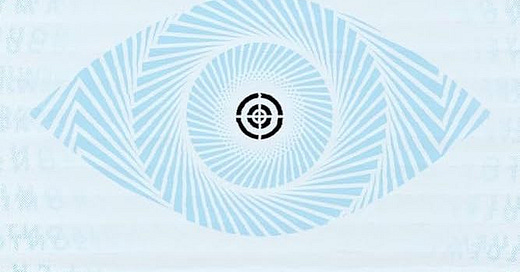


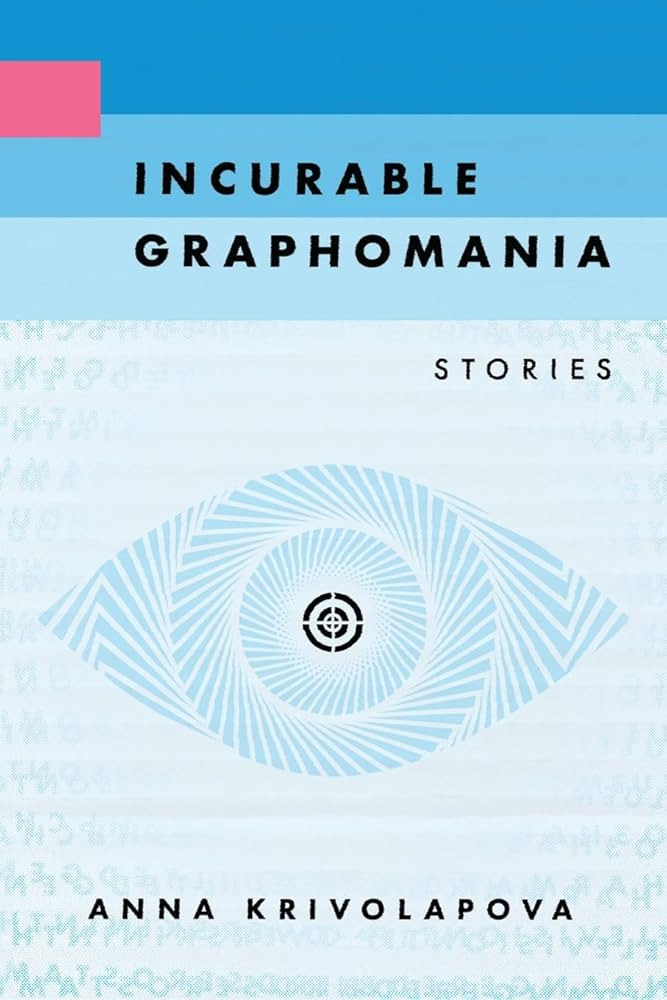

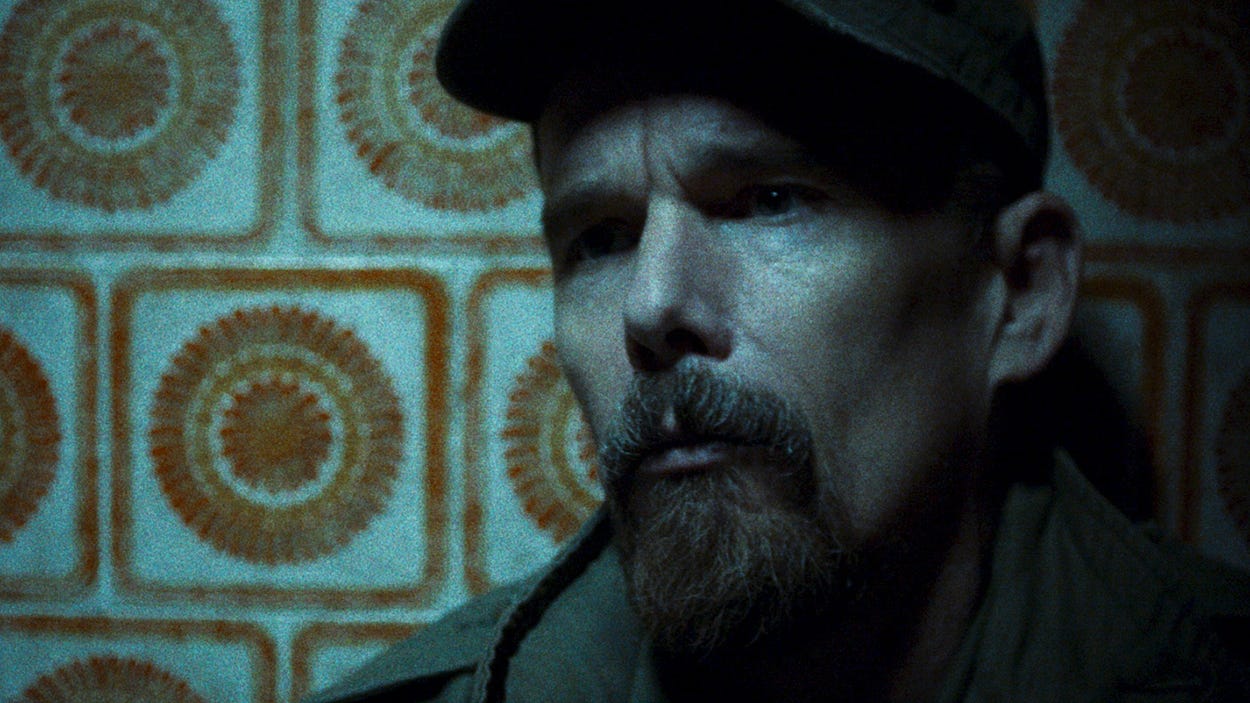

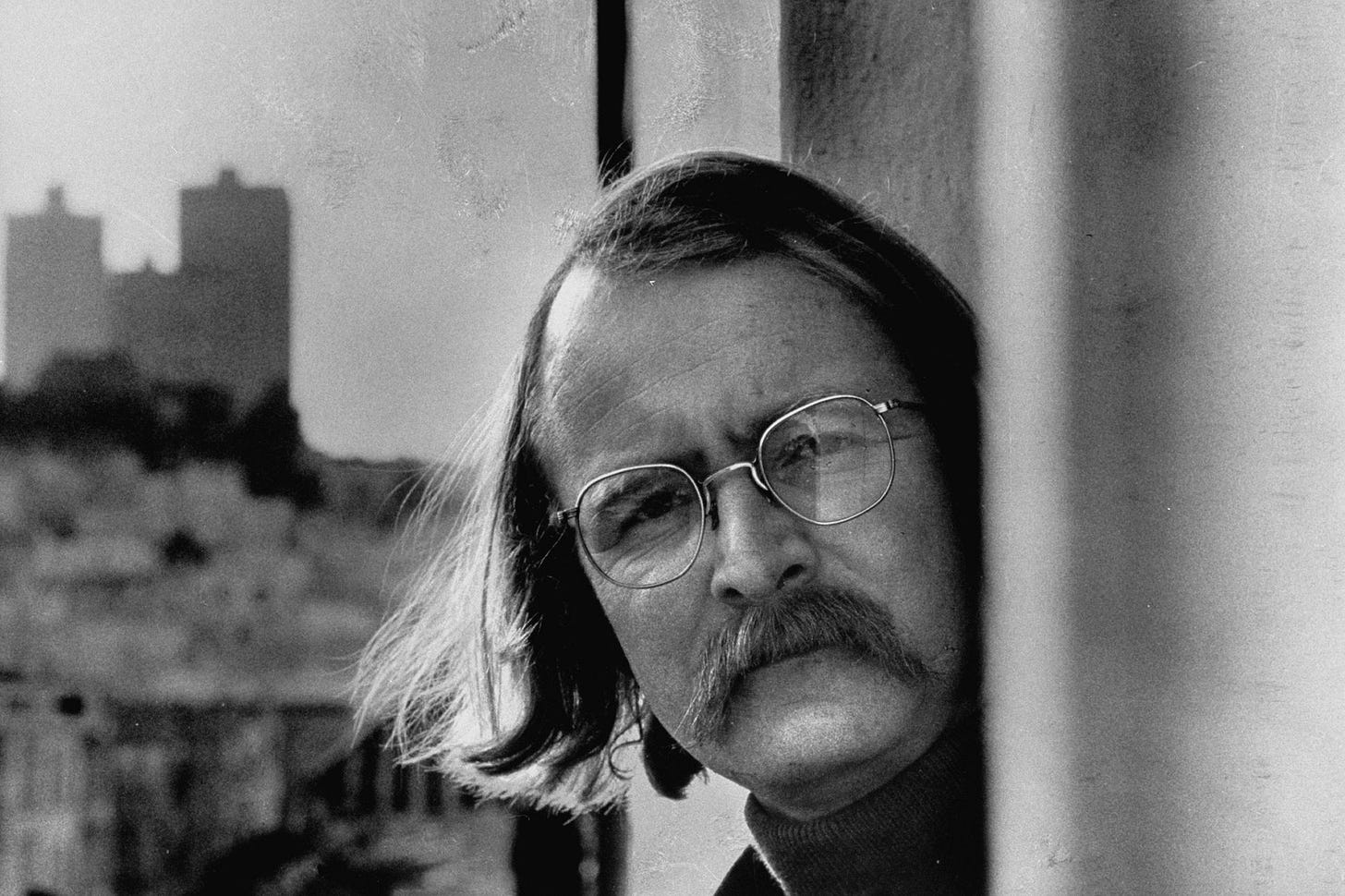

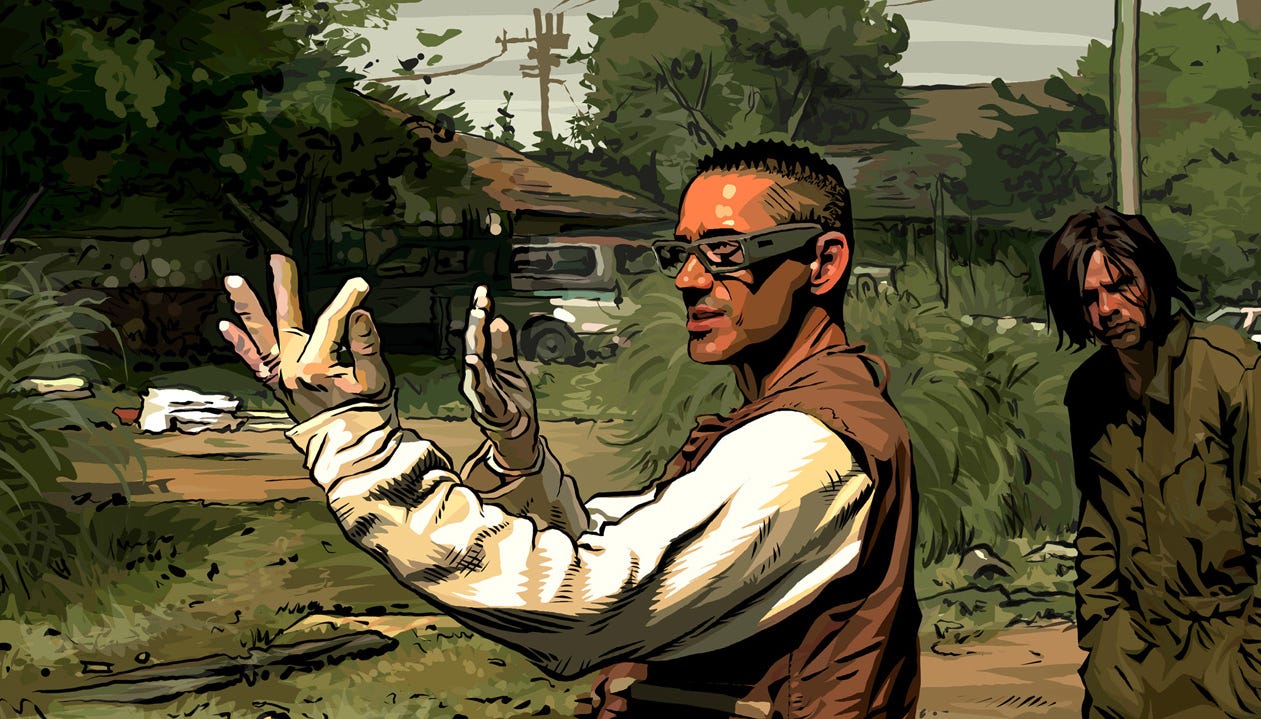
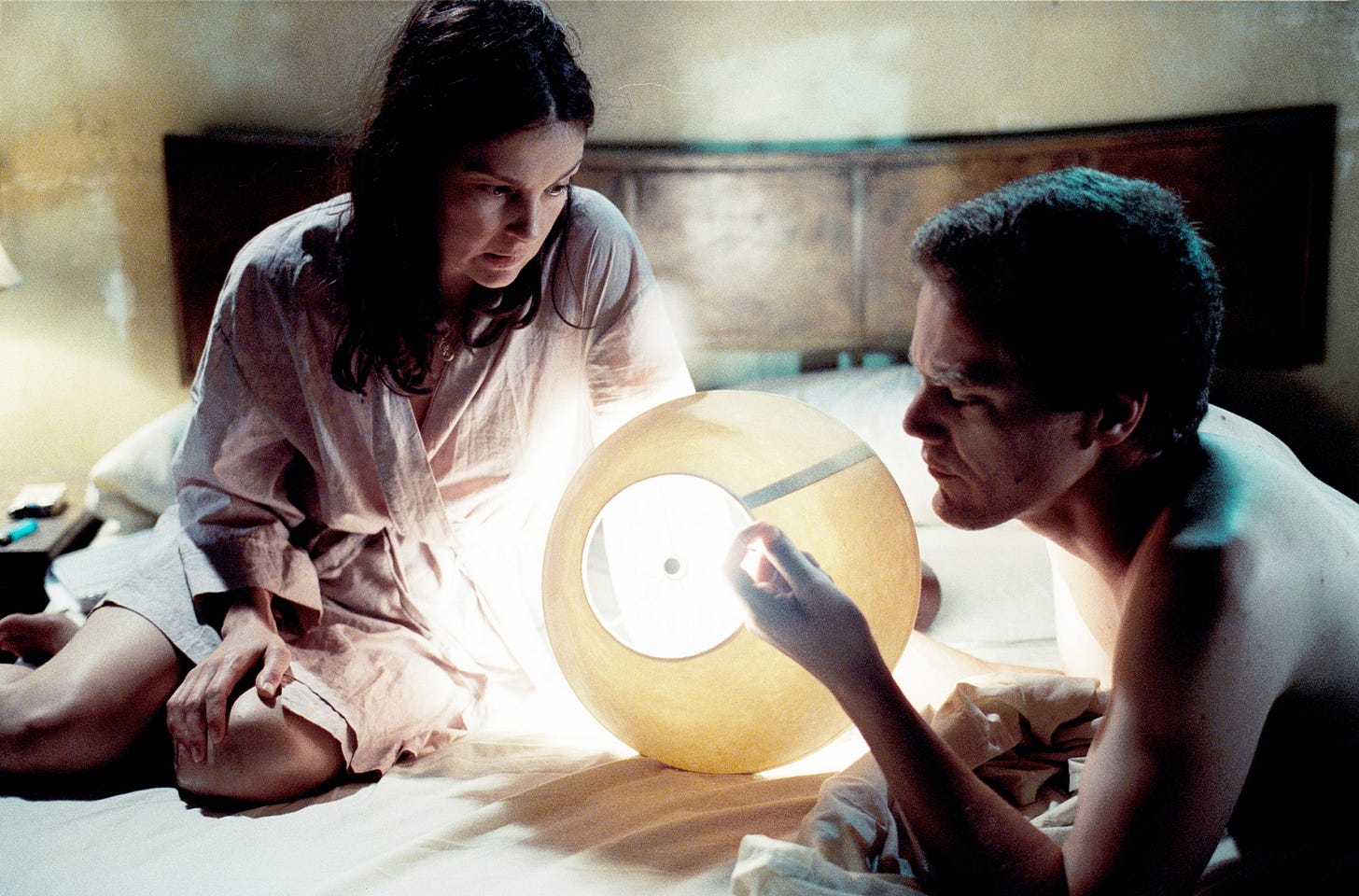
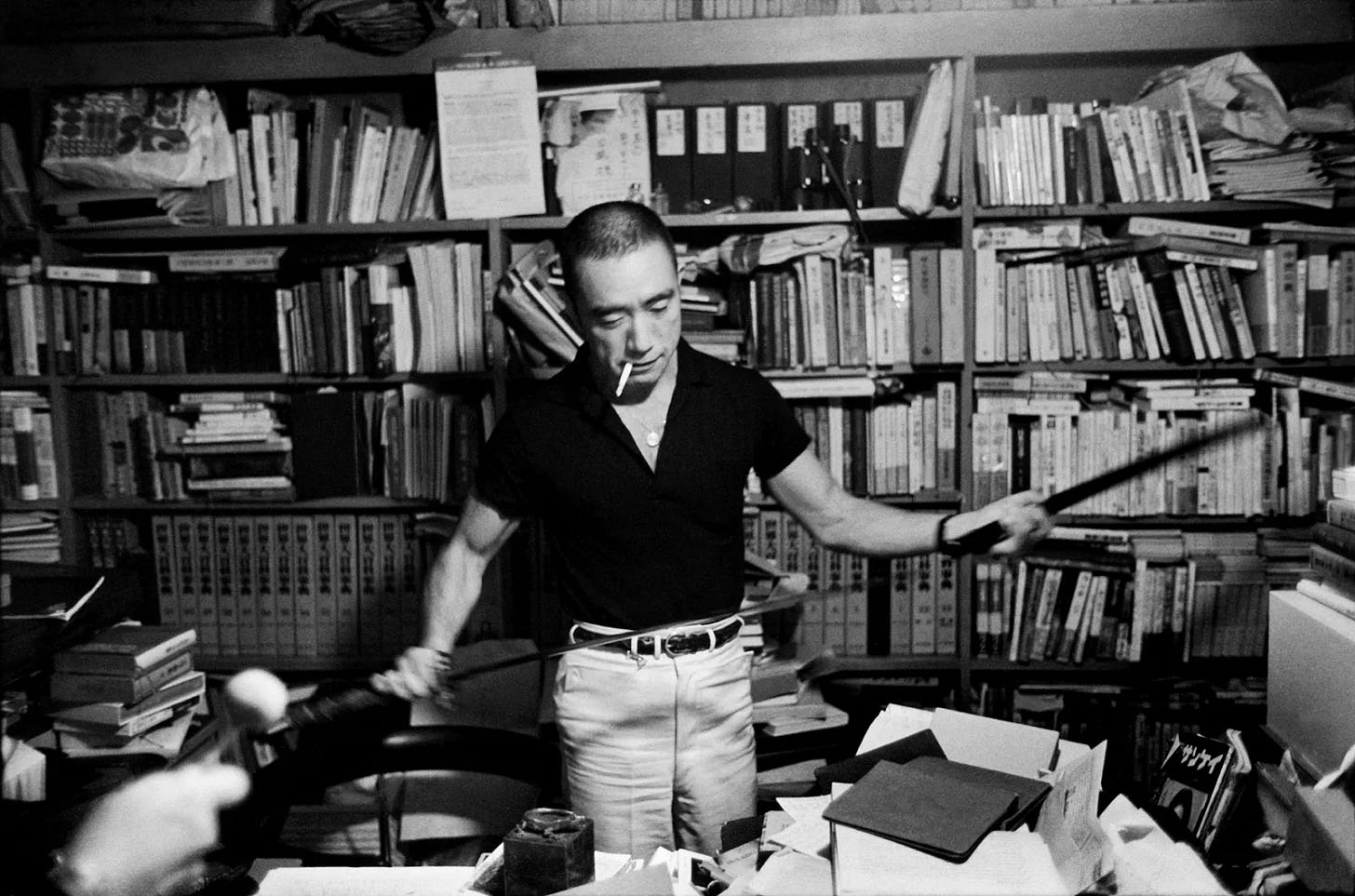
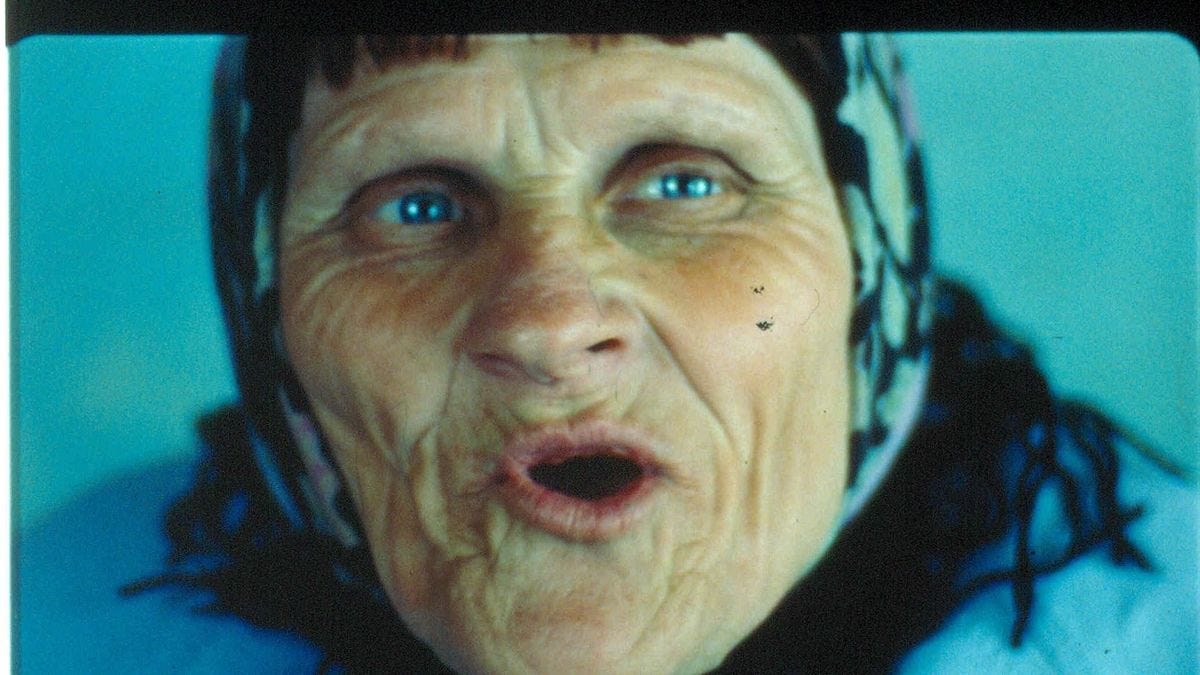
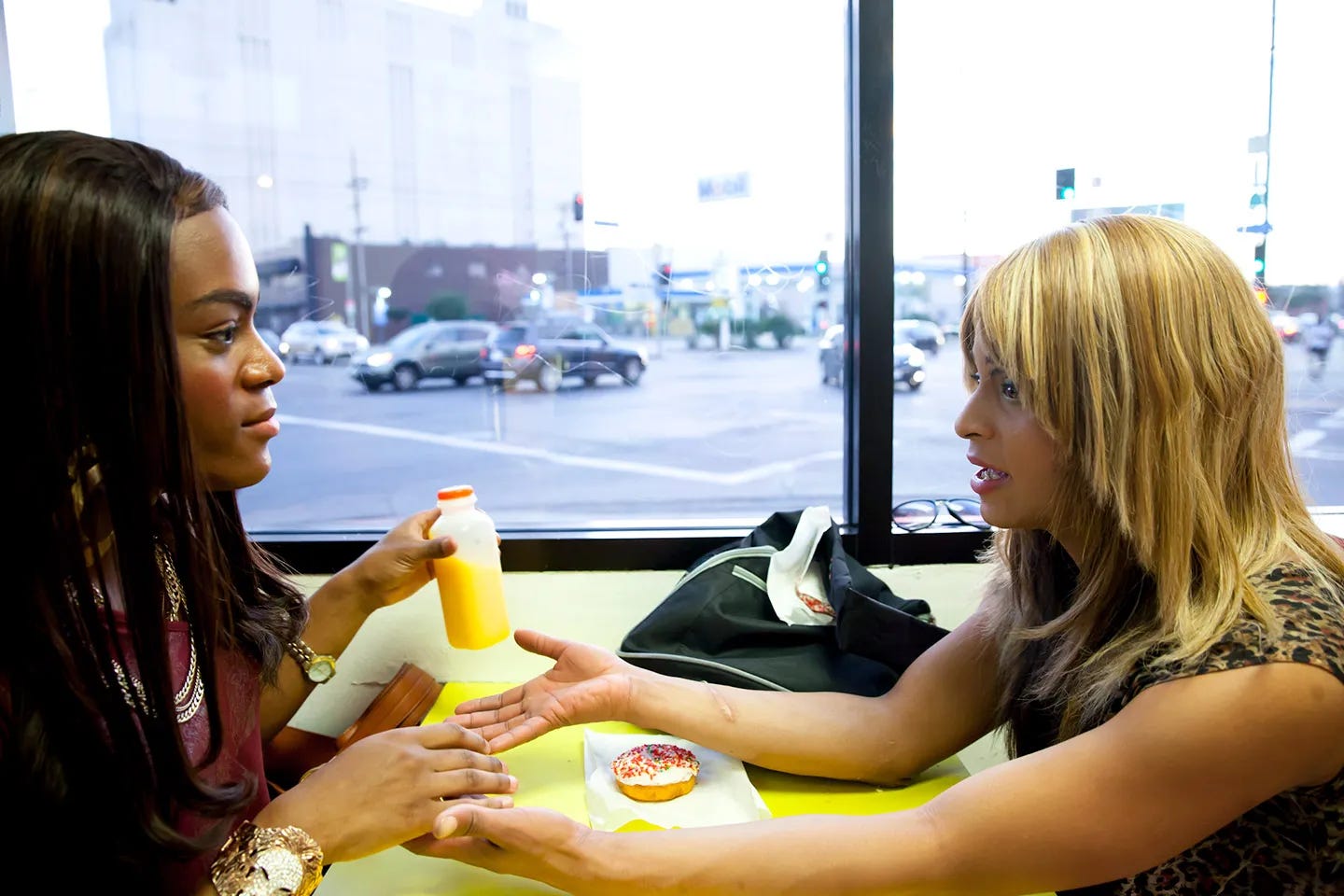


Hey just got around to reading this, great stuff! Got into some interesting areas
Looking forward to dive into this! ❤️